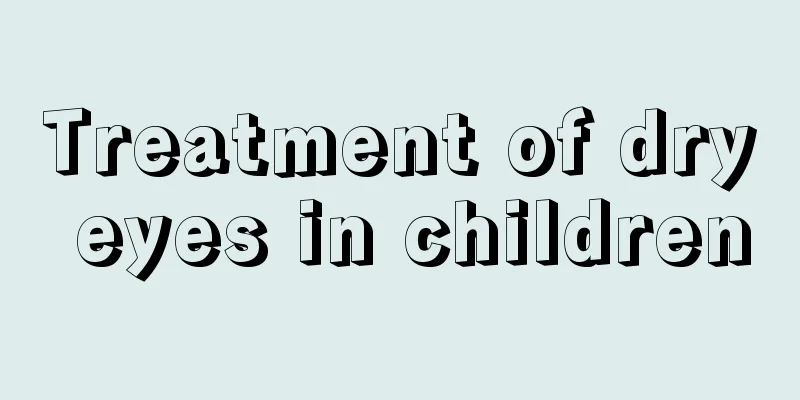Why is the child sweating on his head?

|
Children are in the golden period of growth and development when they are young. At the same time, their metabolism and self-control abilities are not fully developed. Sweating is a form of catharsis for the human body. Therefore, children sometimes experience sweating on their heads due to this uncontrollable physiological factor. Apart from this uncontrollable physiological factor, illness and internal physical weakness are also major causes of sweating on children's heads. Physiological sweating Sweating is a kind of nerve reflex in the body. Children are in the stage of growth and development, their physiological metabolism is vigorous, and the regulatory function of the nervous system is not very sound, so they sweat a lot, which is medically called physiological hyperhidrosis. Children with this kind of physiological hyperhidrosis will sweat more obviously in the following situations, such as in summer, when children wear too many or too tight clothes, when children are active, when eating hot food, when they are nervous or scared. The so-called physiological hyperhidrosis refers to sweating caused by a child who is well-developed, healthy, and not suffering from any disease. Physiological hyperhidrosis is more common in the head and neck, often occurring within half an hour after falling asleep, and sweating stops in about an hour. If the child has no other abnormal symptoms and sweats a lot, it is not because of the child's weak constitution. Parents do not need to worry and no special medication is needed. Pathological sweating Children tend to sweat easily after falling asleep at night, often wetting their vests or sheets, and they are prone to illness when they catch a cold. This phenomenon is medically called night sweats. It may be a manifestation of calcium deficiency in children and an early manifestation of rickets. Parents must pay attention to this problem. It turns out that in addition to the growth and development of bones, the development of various body systems also requires the participation of calcium. Calcium deficiency will cause the body's self-regulation system to be disordered, causing a series of neurological symptoms. Night sweats and excessive sweating are common phenomena. Children suffering from tuberculosis, anemia, rheumatism, rheumatoid arthritis and other diseases may also sweat excessively. Therefore, when a child has pathological hyperhidrosis, he or she should go to the hospital for treatment in time to rule out the possibility that the hyperhidrosis is caused by certain diseases. |
<<: What are the symptoms of blood heat in children?
>>: How to treat pinworm disease in children
Recommend
Why does a child's head sweat?
In life, sweating is actually a very normal physi...
What should I do if my child smells fishy?
In our lives, people love to eat fish. No matter ...
11-month-old baby weight standard
I don’t know if you know about the weight of elev...
How to treat tonsillitis in children?
Tonsillitis in children is a common upper respira...
What is the reason why the baby is always hungry?
In many cases, the baby's health is a problem...
Is it good for children to eat seaweed? What to watch out for
Nori is also called laver, but nori is more proce...
What is the cause of the child's swollen face?
Children's skin is relatively tender and gene...
What to eat for children with bronchitis
Once children develop bronchitis, it is often ver...
Reasons why children lose their temper
Some children easily develop bad habits as they g...
What to do if your baby has congenital anemia
Children's anemia is generally caused by cong...
Can losing weight help you grow taller?
For some obese children or teenagers, they often ...
How old can babies eat avocado?
We know that when the baby is four to six months ...
What are the folk remedies for whooping cough in children?
It is rather troublesome to treat whooping cough ...
How to treat bronchitis in children?
Bronchitis in children is a common acute upper re...
What should I do if my baby has a high fever and his temperature is sometimes high and sometimes low?
Babies often get sick due to their low immunity. ...









